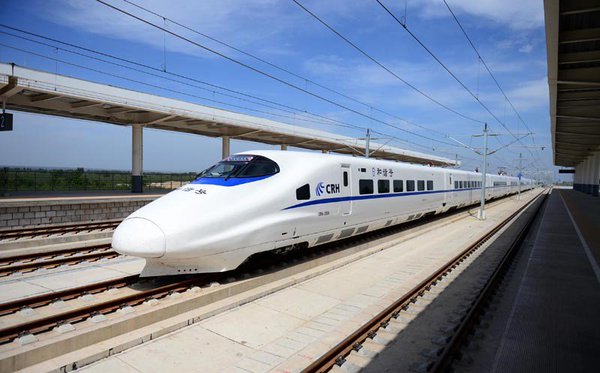Mozambique: Business owners ask that Local Content policy includes public procurement
Nyusi visits China Railway Rolling Stock Company

Mozambican President Filipe Nyusi on Friday visited the headquarters of the state-owned China Railway Rolling Stock Corporation (CRRC), the largest manufacturer of railway equipment in the world, in the city of Jinan, capital of Shandong province.
Formed out of a merger of two companies in 2015, CRRC supplies 90 per cent of the Chinese rolling stock market. This includes the equipment for the network of high speed trains, which Nyusi experienced on Friday morning, taking a train from Beijing to Jinan.
Part of his delegation had already experienced the smooth, almost noiseless high speed trains earlier in the week, in the journey from the southern city of Nanjing to Beijing. This “bullet train”, travelling at over 300 kilometres an hour for most of the trip, covered the 1,160 kilometres in just over three and a half hours.
A plane trip between Nanjing and Beijing takes around two hours, but this easily rises to three hours once the time spent at airports at both ends is factored into the calculation. China’s high speed rail network now covers about 19,000 kilometres.
Accompanied by the Vice-Governor of Shandong, Xia Geng, Nyusi received a briefing on the CRRC products and briefly toured one of the workshops.
CRRC has exported to 102 countries and territories on six continents, including Mozambique. The company has repaired wagons belonging to the Mozambican port and rail company, CFM.
CRRC, its spokesmen said, is “in the vanguard of Chinese manufacturing”, and is “committed to making the best products and providing top quality services”.
CRRC is a vast corporation, employing 175,700 people, and with share capital of 27.29 billion yuan (about 4.4 billion US dollars).
Jinan is a metropolis of about six million people on the banks of the Yellow River. The site has been continuously occupied for at least 4,000 years, and the province of which it is the capital, Shandong, is regarded as one of the cradles of Chinese civilisation. It is where the Chinese writing system is thought to have been invented, and was the birthplace of the philosopher Confucius.
In the early years of Communist rule, Jinan was a centre of heavy industry, with large iron and steel works and chemical factories. But this century it has become a city of high technology industries. Information technology, modern transport industries (such as CRRC) and bio-engineering have become key components of the Jinan economy.
The Jinan High-Tech Industrial Development Zone was one of the first such zones to be approved by China’s State Council (equivalent to the central government).












Leave a Reply
Be the First to Comment!
You must be logged in to post a comment.
You must be logged in to post a comment.